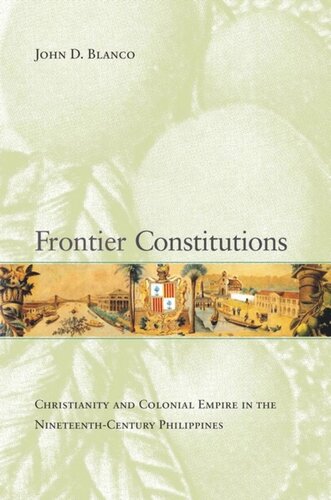

Most ebook files are in PDF format, so you can easily read them using various software such as Foxit Reader or directly on the Google Chrome browser.
Some ebook files are released by publishers in other formats such as .awz, .mobi, .epub, .fb2, etc. You may need to install specific software to read these formats on mobile/PC, such as Calibre.
Please read the tutorial at this link: https://ebookbell.com/faq
We offer FREE conversion to the popular formats you request; however, this may take some time. Therefore, right after payment, please email us, and we will try to provide the service as quickly as possible.
For some exceptional file formats or broken links (if any), please refrain from opening any disputes. Instead, email us first, and we will try to assist within a maximum of 6 hours.
EbookBell Team

4.3
8 reviewsFrontier Constitutions is a pathbreaking study of the cultural transformations arrived at by Spanish colonists, native-born creoles, mestizos (Chinese and Spanish), and indigenous colonial subjects in the Philippines during the crisis of colonial hegemony in the nineteenth century, and the social anomie that resulted from this crisis in law and politics. John D. Blanco argues that modernity in the colonial Philippines should not be understood as an imperfect version of a European model but as a unique set of expressions emerging out of contradictions—expressions that sanctioned new political communities formed around the precariousness of Spanish rule. Blanco shows how artists and writers struggled to synthesize these contradictions as they attempted to secure the colonial order or, conversely, to achieve Philippine independence.